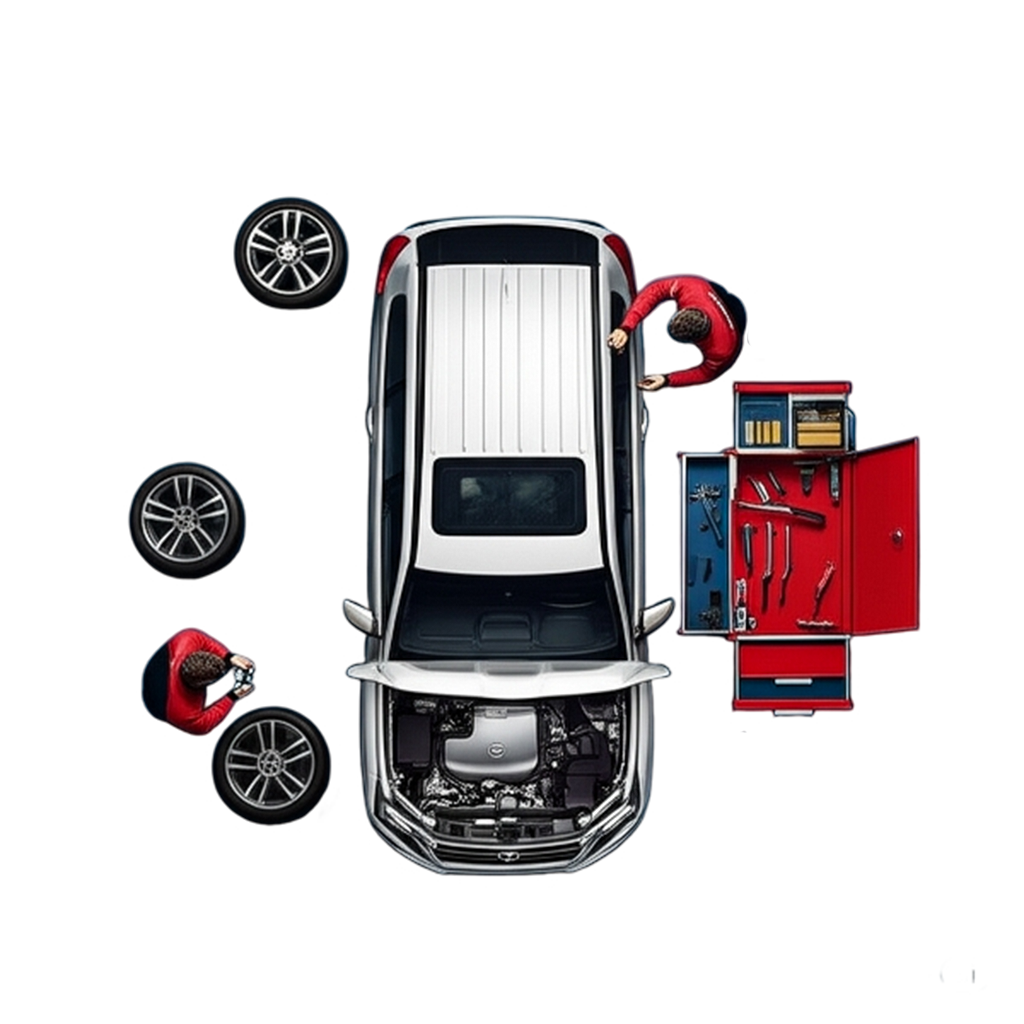7 precautions and preventive measures to consider while using your car
Getting a car is a huge milestone! It's a common fact that if you need to run any business, you will also require a car. In fact, with the current economic desperation, you might have been forced to buy a car, even if you don't need it. To avoid any issues, you have to keep it in proper shape. This year, the most effective way to prevent car repair and services is to learn a thing or two about the most common car and car accessories problems.
This blog will navigate through different preventive measures and solutions.
1) Don't rely on the car to tell you everything
Sometimes we drivers are too focused on what we are doing, where we are heading, and who we are meeting. We need to look around and ensure everything is working correctly. It is only possible to know all of the things that can happen wrong with your car by being able to read it.
The first thing to understand is that many systems in a modern vehicle work together to make the vehicle move and behave as it should. Each system has sensors (sensors measure something) that detect some aspect of the situation surrounding the vehicle.
These sensors send information to the central data processor, which then processes the information and sends commands to each system to act upon this information. For example, if the driver turns the steering wheel during driving, the chassis or suspension system will detect the change making the vehicle 'feel' different to the driver.
Other vehicles do not use internal control mechanisms but instead have external controls for various features. These may include lights, horns, airbag status, etc.
2) Don't put anything not tied to the car into your trunk
You should include any personal items that could become missing, but there are other items as well. Trunks must be emptied before loading any valuable possessions inside.
When parking, always check to make sure no one else is around, and if you see anyone coming, move everything out of the way or remember where it is. Also, keep an eye out while driving; don't just focus on what is ahead.
3) Don't let anyone get in your trunk
Even if you are in a hurry, don't allow anyone to enter your vehicle while it is parked or driven. Someone could take all of your belongings and even hurt you physically. It happens too often that people get into accidents and forget about them.
Also, make sure no one has access to your keys. Sometimes housekeeping services will collect extra keys. Make sure they know not to give these keys to other people.
It depends upon your thought process. If someone breaks into your car, you should know who does it. Also, note how many times you have been broken into. If they hit you more than once, then find another way to protect yourself or schedule for full auto service.
4) If you need something from your trunk, tell a valet
Valets will help you get what you need when you need them because they check up on which cars have luggage first. This way, you'll know where there is a free spot in line to pick up any bags.
You can also ask for directions to the nearest bathrooms or restaurants, so you can take your turn and end up with food. It depends on how many drivers run around looking for things to do.
Bring enough supplies to stay at the campground overnight. This option is helpful if you make a wrong turn or run out of gas and no one else stops to assist you.
Sleeping well before a trip helps prevent other problems like driver exhaustion. Plus, getting a good night's rest makes driving more enjoyable.
5) Don't use your car to block
Nowadays, it is challenging to avoid professional car maintenance. However, there are some things you can do to reduce the amount of time you spend in your vehicle.
If you live near other businesses, try running a shuttle rather than driving yourself or taking public transport. You will save money on traffic costs and time by being closer to home.
Also, having these close at hand makes calling customers/friends more enjoyable as you wait for them to get within range. Where possible, choose a different method of transportation instead of driving if you don't need to go anywhere.
Lastly, keep unnecessary items out of your car. If you have the equipment to be used once you arrive, put it in a safe place (like a purse or bag). Similarly, remember the medications and paperwork you need during travels.
This way, when you enter your destination, you'll feel prepared and won't have to worry about looking for anything.
6) Don't rely on your car to hold a full load
If you are one of those who take advantage of the gaps between stops to let out stress, then this tip may surprise you. However, taking time away from traffic is critical to being safe behind the wheel.
If you are running late, don't just turn around and put off heading to work; get ready as quickly as possible. Tell someone where you are leaving and how long it will be until you head home.
7) Don't use your car as a food locker
We all do it. You are driving along when you realize you are close to running out of gas. You pull into the next parking lot and try to think of what you will cook for dinner that night.
But do you know how to calculate the fuel you need to bring with you if you run out? Did you consider whether you would be slowing down at this particular stoplight?
People must remember to factor in these things before pulling stuff out of their bags.
A bigger problem has unnecessary items in your vehicle anyway. Adding weight to your car will hurt the engine performance, causing issues that will be costly for you at a full-service auto shop.
You want to avoid hurting your engine by overloading it with excess baggage. Let your gasoline mileage improve while you stay relaxed around other drivers.
Bonus Tip - Know your limits
Engines are complex systems, and even experienced technicians can only do so much before you reach your mechanical limit. If you need to learn your engine well, it is wise to let a professional with experience working on cars modify the settings on your engine.
Furthermore, many things require strong hands; tight bolts, large engines, and heavy tools may need assistance.
Be honest about your limitations if this is your first time working on a car. Let someone with more experience help you instead of forcing this knowledge onto them or feeling stressed because you don't know the material.
Some topics are more accessible to repair than others. Usually, electrical issues (such as noise) or structural issues (such as vibration) indicate something is wrong with the vehicle.
Keep checking your vehicle with eFetch for warnings and fixes. These could indicate another problem at hand.





